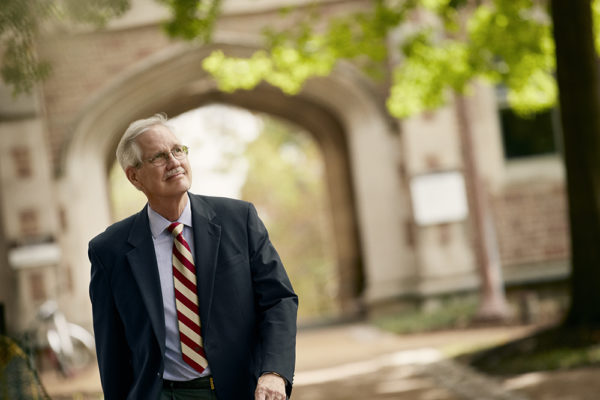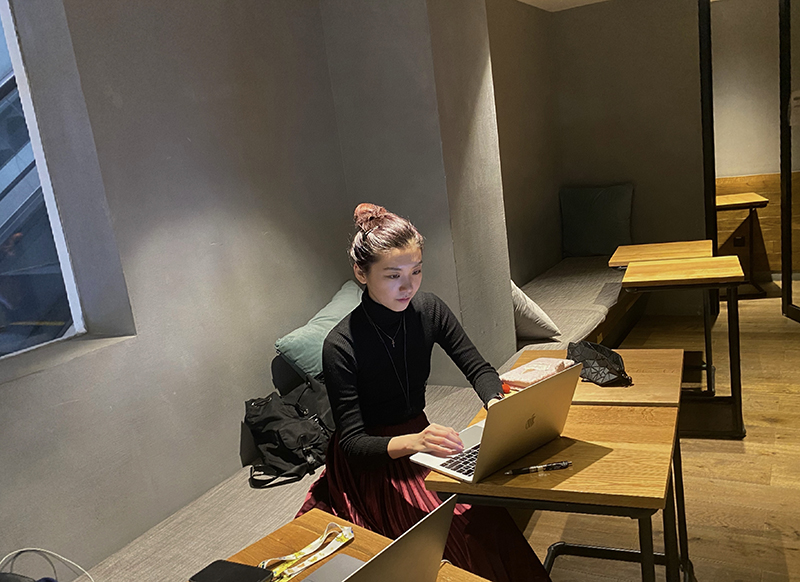
Though far from campus, 916 international students are finding new ways to connect to the Washington University in St. Louis community. Faculty members have established special discussion sections and office hours, schools are recruiting mentors and students are creating their own support networks in their home countries.
“What makes WashU special is the excellent education and the caring community,” said Ruthie Pyles, associate dean and director of graduate enrollment management at Olin Business School. “We’re learning that we can still deliver those things today, just in a different way.”
Since the start of the COVID-19 pandemic, Kurt Dirks, vice chancellor for international affairs, and other university leaders have been working to solve the many technological and logistical obstacles facing students studying abroad, primarily in China. How, for instance, could the university ensure that students could access course materials from any country in the world? Could schools change class times or adjust working hours to accommodate students studying in the Americas, Europe, Asia and Africa? And, most importantly, is it possible to know every student by name and story when those students are thousands of miles from campus?
“The solutions demand a lot of creativity and a lot of work from both faculty and staff,” Dirks said. “I’ve been amazed by the innovative ways our faculty and staff have recreated the WashU community virtually. And, we have been incredibly impressed with the commitment of students to work through the obstacles.”
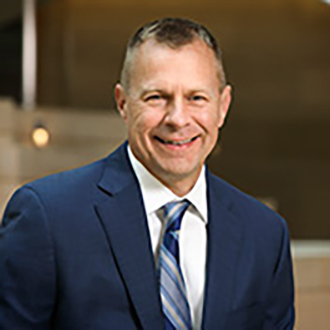
‘We want you to be part of our community’
Each school has developed programs to serve the unique needs of its students. The School of Law, for instance, assigned every foreign-trained lawyer in its master of laws program an attorney adviser, many of whom are practicing lawyers in St. Louis. Meanwhile, the Brown School developed a partnership with Fudan University, allowing Chinese students to study there and access resources.
Next semester, Olin Business School will launch an innovative residency program in Beijing and Shanghai for graduate students in China. Students will convene regularly to hear from guest speakers, receive career counseling and socialize. Because the COVID-19 pandemic has largely been brought under control in China, students can — and desperately want to — meet.
“Our students in China are telling us they miss seeing each other,” Pyles said. “We hope the residencies provide connectivity in a way that is meaningful and impactful from an academic, personal and a career perspective.”
And the McKelvey School of Engineering extended its graduate student mentoring program to those students who have deferred. Students can pick their mentor, either an alum or current student, based on discipline, nationality and gender.
“Our students are looking for academic support and career advice, but they also just want someone to talk to who is more closely aligned with their age and culture, especially at this time when we are isolated from each other,” said Holly Stanwich, assistant director of graduate student services. “I tell our students, ‘Even though you’re still in China, we are expecting you at some point in time and we want you to be part of our community.’”
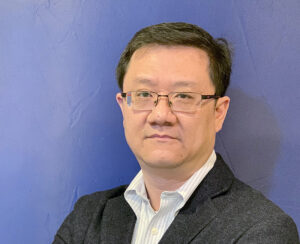
‘We cannot leave them behind’
Beyond school initiatives, hundreds of faculty members have adjusted class times, added discussion, lab and studio sections, and expanded office hours to accommodate students living several time zones away.
For Zhao Ma, associate professor of modern Chinese history and culture in Arts & Sciences, that means an early-morning discussion section for his six students in China and office hours that can stretch into the evening. Before the pandemic upended life on campus, one or two students would drop in to discuss an upcoming test or research project. But these days, dozens of students virtually visit.
“The students feel this is the moment they can personalize their interaction with faculty,” Ma said. “It has been a bright spot in the pandemic. I like seeing their faces. I like the discussions.”
Ma also makes time to meet with the leaders of Washington University in St. Louis China Forum, a student group that hosts discussions with experts in Chinese politics, business and culture. Ma, the group’s adviser, helps connect the group’s president, sophomore Serena Wu, to speakers.
Ma estimates the new regimen has doubled his workload. Still, he is exhilarated by Chinese students who are, quite literally, risking their freedom to study modern Chinese history.
“They are your students. They are part of the WashU community. We cannot leave them behind. The day they sign up for your class, they commit to a journey to stay with you. …”
Zhao Ma
“It’s not about whether or not you want to do this,” Ma said. “They are your students. They are part of the WashU community. We cannot leave them behind. The day they sign up for your class, they commit to a journey to stay with you. They could have taken a gap year; they could have taken other classes. But they wanted to take your class. That means they are entrusting their education to you. We don’t take this lightly.”
This sort of early-and-often outreach has helped Washington University maintain high international student enrollment. Some 3,250 international students enrolled in the fall, and even more students are expected in the spring. In the end, the university expects this academic year to boast the second-highest international student enrollment in university history. In contrast, nationwide, international enrollment has declined by 16%, according to the annual Open Doors survey.
“The university has made clear it values and welcomes international students and that they matter just as much as students who are on campus,” Dirks said. “Our commitment to the international student experience will not stop after the pandemic. More and more students are asking, ‘Why should I come to the United States?’ Our answer is clear — Washington University offers a world-class education and a caring community. We can never forget how much the personal connection matters.”
‘The friendships feel the same’
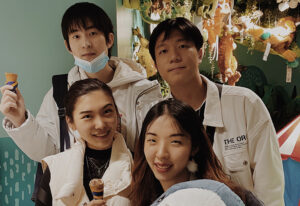
Students, themselves, are uniting to create their own residential or academic communities. Adrian Cao, a first-year student studying math in Arts & Sciences, found two other Washington University students to share an apartment in his hometown of Hangzhou. The friends eat and study together.
“It’s a freer vibe than I would have had at home, where my parents would cook for me and wake me up for breakfast,” Cao said. “We’ve created an atmosphere similar to college for ourselves, where we can discuss things together and be more independent to take care of ourselves.”
And Wu, president of the WashU China Forum and a history major in Arts & Sciences, has stayed connected to classmates via weekly executive board meetings and WeChat discussions with the group’s 100 active members.
“When we started this club, we worried it would be exclusive because all of us are Chinese, but we’ve been pleasantly surprised how many American students of all backgrounds started to join us,” said Wu, who lives with her parents in Shanghai. “It feels good that so many people are interested in these issues and want to be part of what we’re doing. I wish I was on campus, but I don’t feel isolated. The friendships feel the same.”

